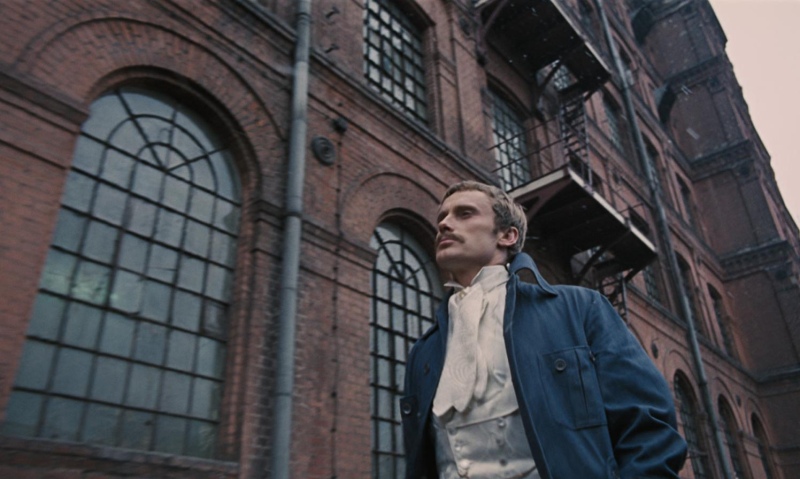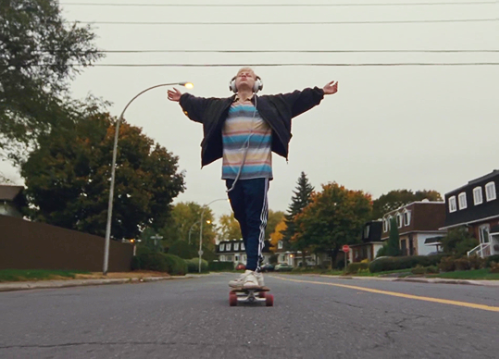21/03/2022
film screening and discussion
The Promised Land
Od–jazd Film Club meeting
-
The Promised Land
-
[Ziemia obiecana], directed by Andrzej Wajda, Poland 1975, 179'
-
- They are young and full of energy, hope and illusions. They want to conquer the world!
- Łódź, the European capital of cotton, at the end of the 19th century. Three friends: Karol, Maks and Moryc open a factory. However, achieving their goal will prove to be more difficult than expected, and they will have to pay a price for fighting for a great fortune by abandoning their youthful ideals and adopting the ruthless principles of the emerging capitalism in its wildest form.
- “The greatest Polish film of all times” is the phrase used to describe Andrzej Wajda’s film breathtaking adaptation of the Nobel Prize winner Władysław Reymont’s novel. An epic, beautiful and cruel story about the price of success with Polish actors in what were probably the roles of their lives: Daniel Olbrychski (the Pole), Wojciech Pszoniak (the Jew) and Andrzej Seweryn (the German) as three industrialists and friends, and Kalina Jędrusik in one of the supporting roles.
- The Oscar-nominated film is also a poignant portrayal of dilemmas whose significance does not fade, and perhaps even grows…
- Is The Promised Land the greatest Polish film of all times indeed?
- What is the secret of a perfect adaptation?
- Why did Wajda’s film gain the reputation of being “anti-Semitic” in some circles in the USA?
- We will try to answer these and many other questions together with our club's expert, film critic and historian, Lesław Czapliński. We invite you to the screening and discussion, during which you will be able to ask questions and share your ideas on how to interpret the film. What do you think The Promised Land is about? We want to hear your opinion!
- Lesław Czapliński
- Historian of ideas; music, theatre and film critic, essayist and publicist. Translator of French and Italian literature. Author of numerous texts on the correspondence of arts, myths of traditional culture, relationships between the ritual and the performative spheres, as well as religious systems and modern ideologies and their persuasive impact within language and media. Author of books: Pasoliniego kino śmierci [Pasolini’s Cinema of Death] (1992), Sarkis Paradżanian [Sarkis Parajaniants] (1998), W kręgu operowych mitów [In the Circle of Opera Myths] (2003). Member of the Polish Filmmakers Association, FIPRESCI juror. He lives in Cracow. He appreciates film d’auteur, which expresses the personality of the filmmaker, and at the same time pays great attention to the form and stylistic originality, thus not only being a record of the ephemeral present, but also allowing one to resist the destructive passage of time.
- Historian of ideas; music, theatre and film critic, essayist and publicist. Translator of French and Italian literature. Author of numerous texts on the correspondence of arts, myths of traditional culture, relationships between the ritual and the performative spheres, as well as religious systems and modern ideologies and their persuasive impact within language and media. Author of books: Pasoliniego kino śmierci [Pasolini’s Cinema of Death] (1992), Sarkis Paradżanian [Sarkis Parajaniants] (1998), W kręgu operowych mitów [In the Circle of Opera Myths] (2003). Member of the Polish Filmmakers Association, FIPRESCI juror. He lives in Cracow. He appreciates film d’auteur, which expresses the personality of the filmmaker, and at the same time pays great attention to the form and stylistic originality, thus not only being a record of the ephemeral present, but also allowing one to resist the destructive passage of time.
Today at U–jazdowski


